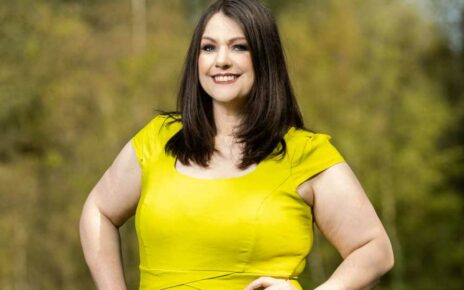MILLENNIALS and Gen X beware. Gen Z has revealed the specific emojis that tell your age – and insists that some of the most common symbols have no place in work conversations.
And, according to the youngest people in the workforce, there is one popular emoji that reads as particularly passive-aggressive, even if that's not the intention.
![]()
A recent Reddit poster asked, "Am I not adult enough to be comfortable with the 'thumbs up' emoji?"
While those in Gen Z agreed, Millennials disagreed – and the conversation quickly became a war of the generations.
“For younger people, the thumbs-up emoji is used to be really passive-aggressive,” a 24-year-old Redditor wrote.
Countering this statement, one Millennial said they considered it a confirmation of a demand.
More on Jobs

I get trolled for being a cleaner, people are MAD about the jobs I do
"Why do you feel like it’s unsettling? Honest question… bc that’s literally how I respond to 90% of messages… I’m almost 40 though, so I wonder if it’s a generational thing…" one user replied.
The issue has led to a minor communication barrier between the generations.
"Everyone my age in the office doesn’t do it, but the Gen X people always do it," the 24-year-old added.
"Took me a bit to adjust and get out of my head that it means they’re mad at me."
Most read in Real Life

Who is Donatus, Landgrave of Hesse?
The user's peers agreed with his argument and believed it could be offensive.
"My last workplace had a WhatsApp chat for our team to send info to each other on and most of the people on there just replied with a thumbs up," one woman commented.
She continued: "I don't know why but it seemed a little bit hostile to me."
To support their claim, business consultant Sue Ellson told The Daily Mail that people in the workplace should consider listening to Gen Z.
Still, she thinks words are always better than symbols.
"Predictive systems can type a word like 'Thanks' in two clicks after a while," she said. "It feels like people are 'too lazy' to type a written response and it doesn't provide clarity as to next steps."
Ellson added: "Do you mean, 'Yes I will do something,' 'Okay I agree,' or is it just confirmation that you received the message."
In the Reddit post, most people weren't worried about the thumbs-up emoji as much but believed the heart emoji was inappropriate.
"To me the heart is reserved for friends and family, and has a more intimate meaning of love, while thumbs up is just simple agreeing. I’m 43," one user commented.
"I actually find a heart emoji weird for work messages," another commenter said.
"I use heart emojis for things like when someone says, 'I got a new kitten,' or 'Susie did a really great job.' If I agree with the idea of praising Susie and I really like Susie, I might put a heart."
Perspectus Global surveyed 2,000 people aged 16 to 29 who claim that the thumbs up and heart emoji are for old people.
Here are some emojis that consider you over the hill:
- Thumbs up
- Red Heart
- "Ok" Symbol
- Checkmark
- Poop
- Loud crying face
- Monkey covering eyes
- Clapping hands
- Lipstick kiss mark
- Grimacing face
Although Gen Z advises older folks to avoid emojis while at work, Millennials and Gen X believe it's appropriate and can have several meanings.
"I love it because it means many many things. It means 'I approve' or 'I understood and will 'obey' or 'I agree,'" one woman said.
She continued: "If anything, my only objection would be that some days it might be hard to tell which one it means. But it is generally pretty clear,"
Ellson, however, stands firm in her argument, saying that this variability can be easily misunderstood.
"It potentially has very different meanings depending on the cultural background of the recipient – approval, happiness, encouragement, number one or go to the surface when diving," she said.
She believes the thumbs up should be "kept to social media or at most, texts."
Source: Read Full Article

